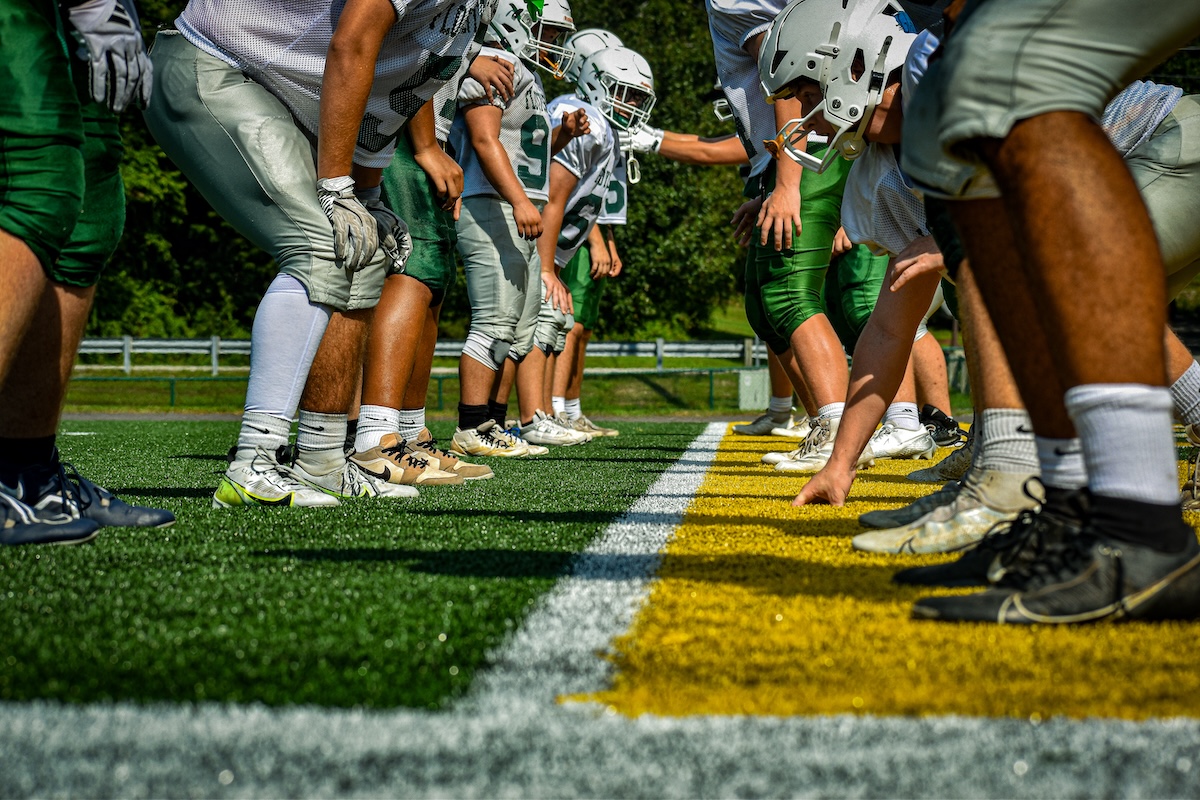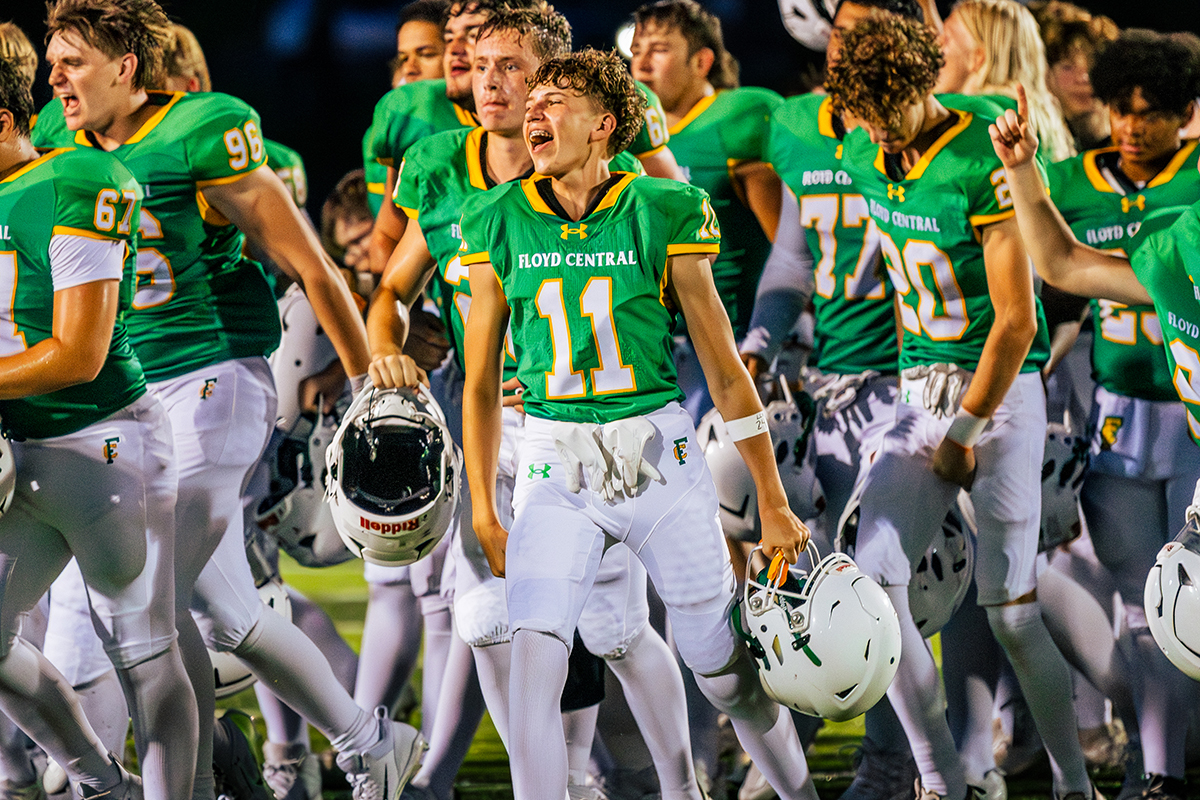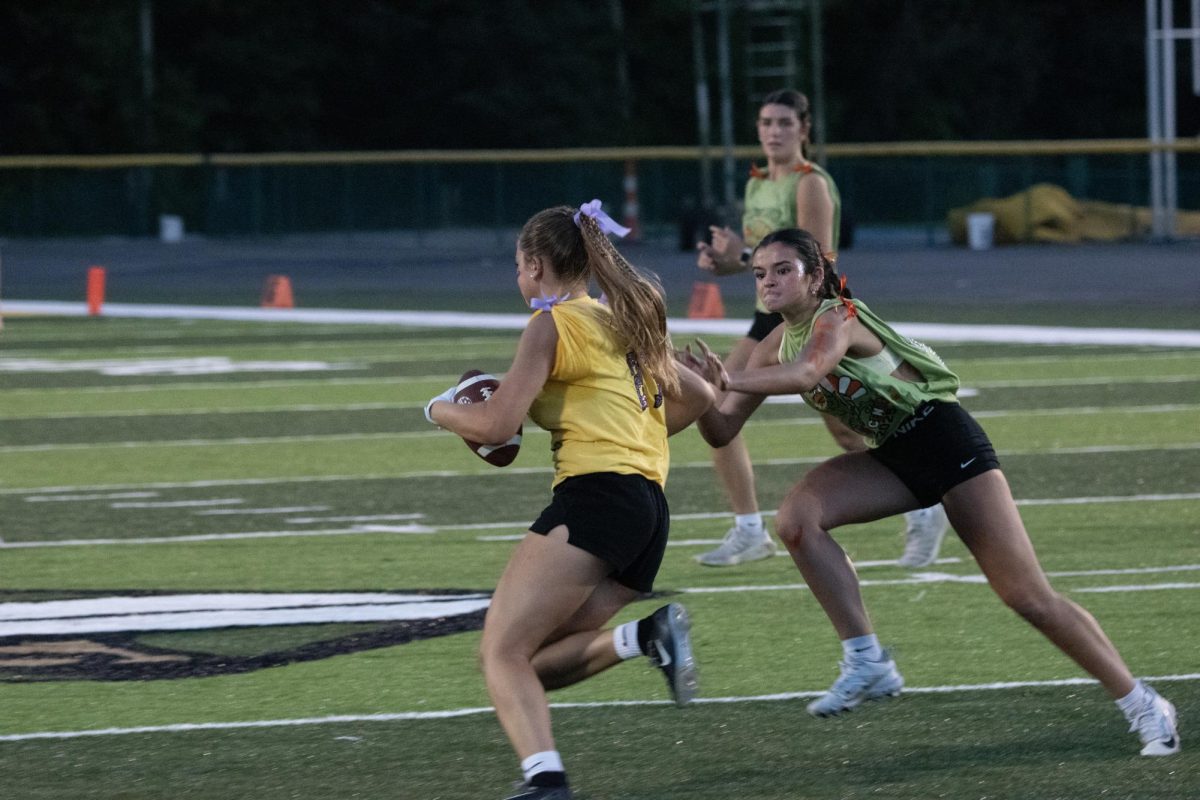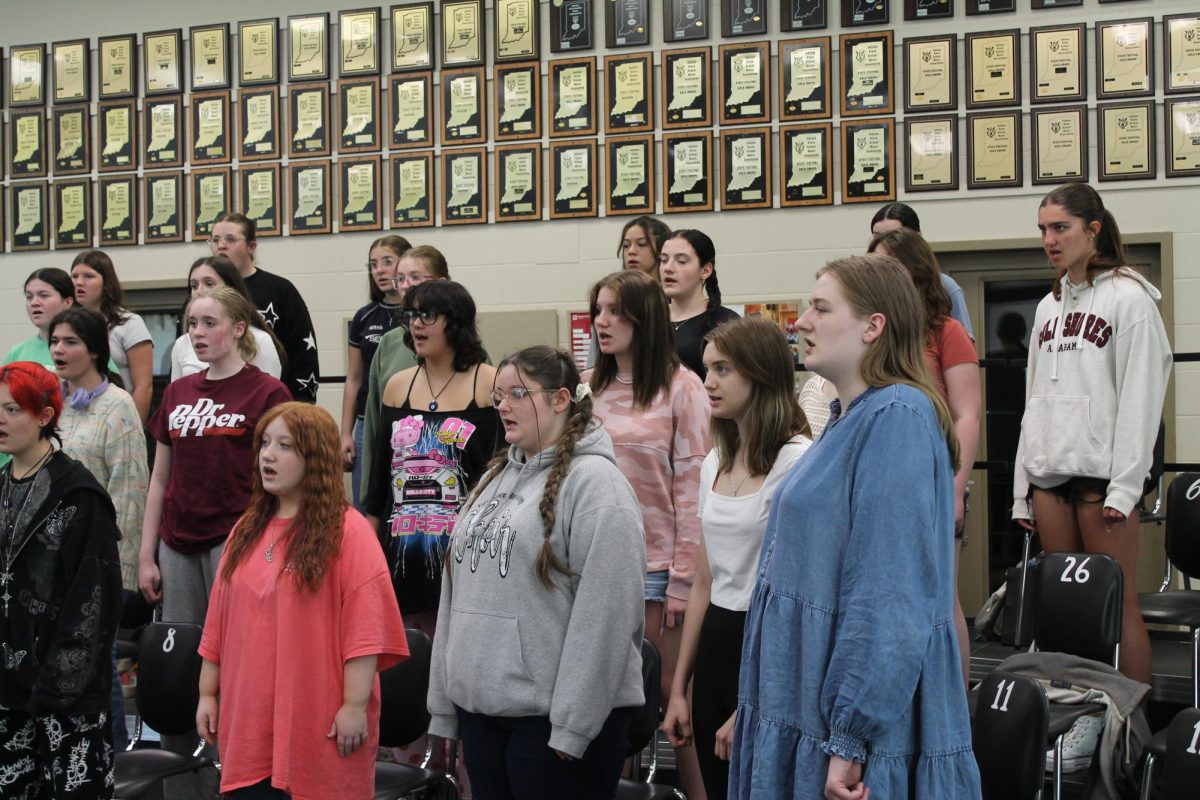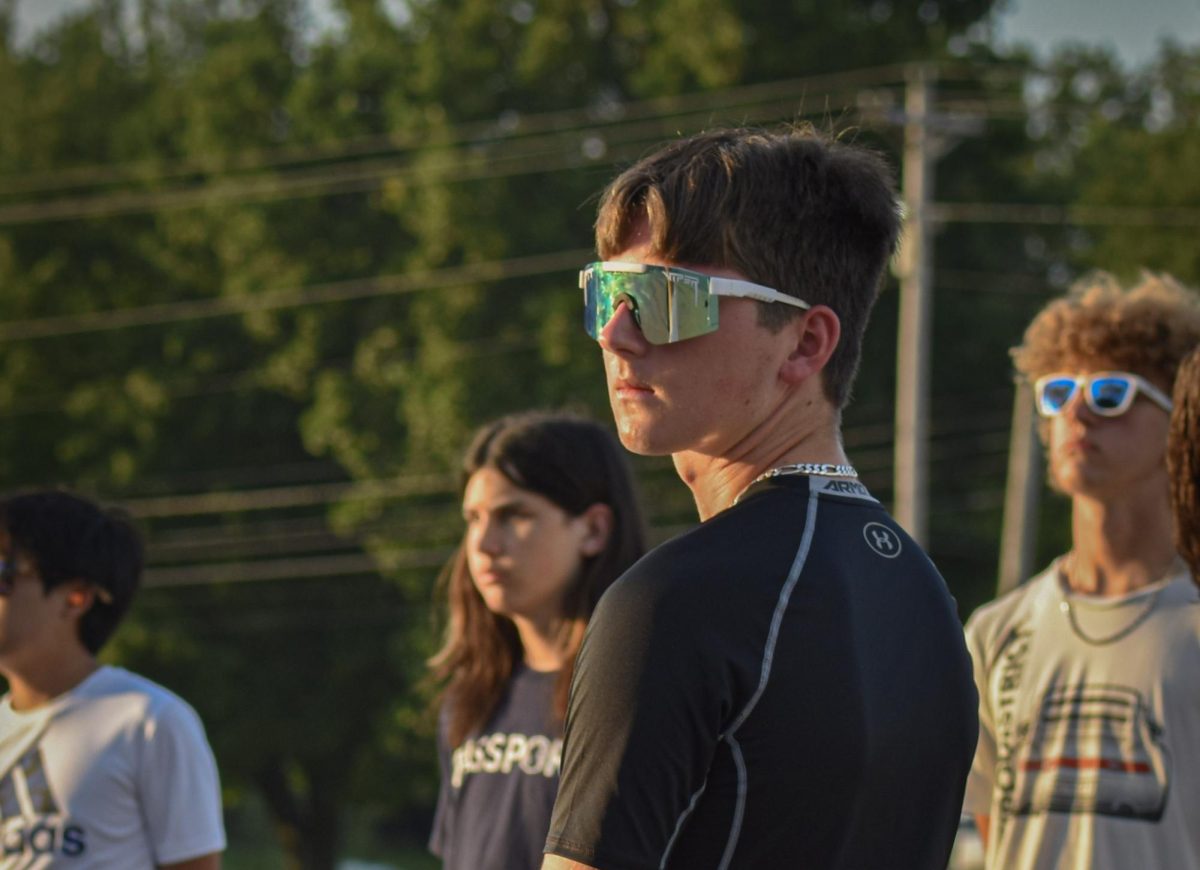A new universal regulation has been placed upon all public schools in Indiana. Senate Enrolled Act 185 was enshrined into law by Governor Eric Holcomb, taking effect July 1st.
This law made use of any device capable of electronic communication during instructional time illegal. FC’s rules regarding phones face only minimal changes as the new phone policy mirrors many of the laws already in place here at FC. These slight changes are supported by most of the staff, who come out to discuss the reasoning behind the increase in phone regulation.
“Kids want to have [phones] under their desks playing on them. They definitely have music playing in their ears. They’re definitely a distraction,” said FC teacher Karen Mayer-Sebastian.
The policy was intended as a way to combat distractions as well as cheating in class. While phones present a threat to classroom focus and test integrity, Chromebooks or school-issued devices also pose threats to student attentiveness. However, the difference between personal devices and the devices the school issues is that the staff can monitor the device usage through Blocksi, an app that allows the teachers to look directly at what the students are doing.
“Games are a huge distraction, but games are a distraction on their [school] devices as well. I can’t tell you how many times I’ve pulled Blocksi up and seen kids playing Cool Math Games. I do think phones are a bigger distraction. We can monitor what they’re doing on their [school] devices. We can’t monitor what they’re doing on their phones, plus the ease of cheating on phones. The phones make it so easy to cheat,” said Mayer-Sebastian.
While staff have pointed to phones and some have acknowledged the distraction risk Chromebooks pose. Students have claimed phone use does not result in laziness and inattentiveness, but phone use is a product of already present disinterest. Mere weeks after the new policy students have already found ways to bypass rules with their Chromebooks.
“If you’re going to be lazy, you’re going to find a way to do it. I know there’s websites that you can use on your Chromebook that unblock the entire thing. I know some people who bought exact copies of school Chromebooks that just don’t have any restrictions off of eBay. It’s like thirty bucks and you just get a Chromebook you can use,” said senior Carson Ragland
The law itself was set into motion by the Indiana state legislature. The Indiana code is a boundary put in place and it is the job of the state and local school boards.
“Policies are derived a lot of times from Indiana code,” said Superintendent Dr. Travis Madison. “But then how are we going to implement those within our system, that’s what we put together, from the board’s perspective, policies that then govern our district under. So a lot of them are kind of based upon state guidelines and, or state mandates and or laws that are passed, and then other policies are ones that are derived locally, from our local school board.”
In light of the new law, the priority to enforce the policy has increased. However, student pushback has followed in tandem.
“Teachers have been enforcing it strictly. I think it’s dumb; there is not really any reason for the rule,” said FC junior Anthony Crawford.
Although many students are frustrated by the change, they understand the need to restrict phone usage.
“People can’t cheat and they can focus more in the classroom,” said freshman Shelby Lyles.
Other students find the issue to be more of a matter of control, or specifically, the ability of one to control technological habits and usage.
“I think people should just have some self-control and know how to use [their phones],” said freshman Addison Marcum.
While student contention has been palpable, some students view the new policy in a different light, seeing it as only slightly more restrictive than previous years’ policies.
“I feel like in the classroom normally the policy really hasn’t changed unless you’re like a more relaxed teacher. I feel like it’s changed for like, I know people who are in art class, they can’t listen to music anymore or like in a study hall you can’t listen to music anymore,” said Ragland.
Although the phone policy is widely viewed by students as constricting; in comparison, to the rules of Highland Hills Middle School, this year’s policy is more relaxed and seen as a less restrictive environment for freshmen students.
“It’s less strict because we didn’t even get to have our phones out at passing period or lunch,” said Lyles.
Other freshmen have repeated the severity of their former school’s policies compared to the new one at FC, which allows students to use personal devices during passing periods and other non-instructional times throughout the day.
“Last year we couldn’t even have our phones in our back pockets,” said Marcum.
Another symptom of the new phone policy is the reinvigoration of discussion regarding device addiction. Both teachers and administrators have echoed concerns about students and what they perceive as their inability to put down their devices.
“… I don’t think it’s too strong a word to say that. I think a lot of us are addicted to that device. I mean, there’s times where, no matter what, it’s kind of something where you kind of have that and I think there’s a lot of statistics that have shown that it’s like, ‘Hey, you have that screen on way too much.’ And so it’s time to kind of find that balance,” said Madison.
While many of FC’s teachers have upheld the policy, concerns over individual teacher enforcement have been expressed by students and staff.
“The key is going to be that every teacher follows the policy. Unfortunately, I’m afraid that we won’t all follow it. If they’re not going to follow it, it’s going to make it hard for the bulk of us that are. It is a state law, it is to help student learning. The point of the phone policy is to help with student learning, to help with student engagement, to help keep students focused in the classroom. It’s not going to do what it’s supposed to do if we don’t all enforce it,” said Mayer-Sebastian.
Students have parroted similar concerns about teachers following the new policies. As enforcement in the eyes of some has been inconsistent.
“It’s ridiculous for like all the things that don’t fly anymore. They’ve been like increasingly vague about what the new rule actually is.. because I know some classes they’ll let you do whatever you want. In other classes it’s like if your phones even on your desk you get sent to the office,” said Ragland.
While student reprisal and teacher support battle it out in the marketplace of school policy. One thing stands clear in the vision of most school employees, the law and subsequent policies of the school are in service of students to improve the academic and personal lives of all students.
“The overarching thing I was hoping for, what we all look for, if anything that we do, is to hopefully put some things in place to promote good habits, and again, to promote education and learning about all the all the good and bad, and then hopefully been able to work with the students to be able to decipher those things and hopefully this enables them to set up some of those good habits. And finding that balance is what we’re really looking for, because that’s going to be healthy for them in the long run, in a lot and a lot of different capacities in their life,” said Madison.



















